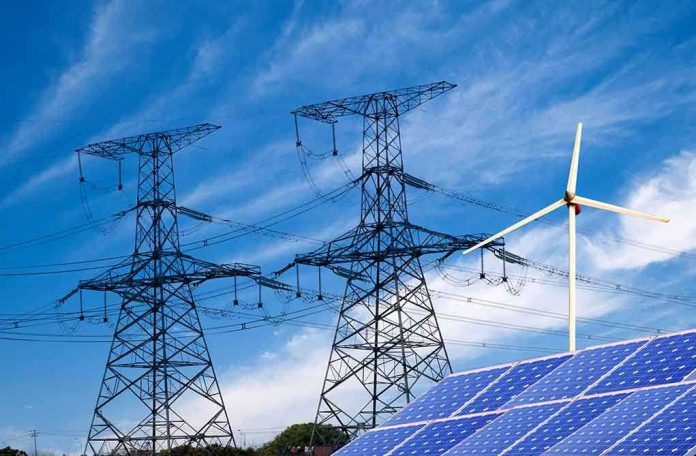
A major utility’s warning about the dangers of a complete green energy transition sends shockwaves through the energy industry and conservative circles.
Story Highlights
- A utility warns against a complete transition to green energy due to potential grid instability.
- Concerns arise about the impact on energy reliability and affordability.
- The debate centers on the balance between environmental goals and economic stability.
- Conservatives argue for a more cautious approach to energy policy.
Utility’s Warning on Green Energy Transition
A prominent utility company has issued a stark warning regarding the potential repercussions of a total shift to green energy. The company emphasized that while green energy initiatives are crucial for environmental sustainability, an abrupt and complete transition could lead to significant instability in the power grid. This instability could result in widespread blackouts and increased energy costs, raising concerns about the reliability and affordability of energy supplies.
The utility’s warning highlights the need for a balanced approach that considers both environmental imperatives and the practicalities of current energy infrastructure. The company argued that a gradual transition, supported by substantial investments in grid modernization and energy storage technologies, is essential to prevent potential disruptions. This perspective is resonating with many conservatives who have long advocated for a pragmatic approach to energy policy that prioritizes energy security and economic stability.
The Economic Implications of Green Energy
The push for a complete transition to green energy poses significant economic challenges. Critics argue that the costs associated with rapid deployment of renewable technologies and necessary grid upgrades could be prohibitive. Moreover, the energy price volatility that might result from reliance on intermittent energy sources like wind and solar could have far-reaching effects on households and businesses. The utility’s warning serves as a reminder of the complex trade-offs involved in energy policy, where aspirations for sustainability must be balanced with economic realities.
In this context, the debate over energy policy has become a focal point for discussions about government intervention and market-driven solutions. Many conservatives argue that government mandates for green energy adoption could stifle innovation and lead to unintended economic consequences. Instead, they advocate for policies that encourage private sector innovation and competition to develop reliable and cost-effective energy solutions.
Balancing Environmental and Economic Goals
The challenge of balancing environmental and economic goals is at the heart of the current energy policy debate. While proponents of a rapid green energy transition emphasize the urgency of addressing climate change, critics highlight the risks associated with undermining energy reliability. The utility’s warning underscores the importance of ensuring that energy policies do not compromise the stability of the power grid, which is critical for economic growth and national security.
Major Utility Admits That Complete Green Energy Transition Could Wreck Power Grid | The Daily Caller https://t.co/xvGB0tKfG0
— Terri (@River_City) August 7, 2025
As the debate continues, it is clear that any effective energy policy must be informed by a comprehensive understanding of both the environmental benefits and economic costs. This requires collaboration between government, industry, and consumers to develop strategies that support sustainable energy development without sacrificing reliability or affordability. By taking a balanced approach, policymakers can help ensure a stable and prosperous energy future.
Sources:
Safety Concerns of the Electric Grid?
PPL Utilities Greenlights 1.3 GW Gas Power Plants Amid Data Center Boom
Major Utility Admits That Complete Green Energy Transition Could Wreck Power Grid



